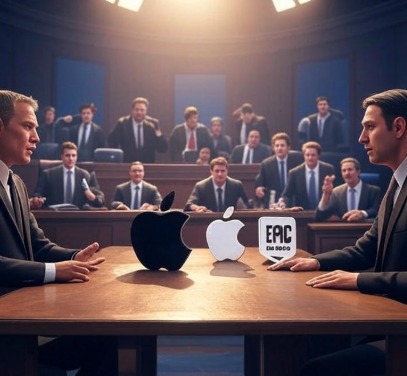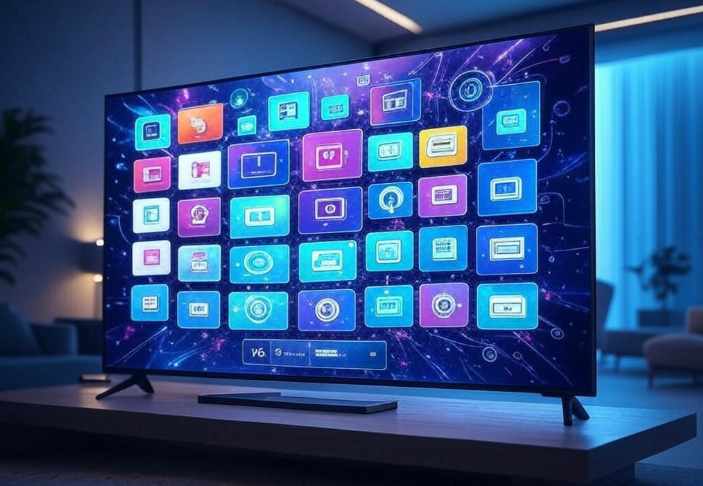A seismic event rocked the tech and gaming industries in August 2020 when Apple pulled Fortnite, one of the most played video games worldwide, from its App Store. Epic Games, the maker of Fortnite, and Apple, the tech behemoth behind the iPhone, engaged in a contentious legal and cultural dispute as a result of this ruling and Google’s subsequent similar action on the Play Store. Since then, the dispute has developed into a protracted tale, and new events in 2025 have rekindled the controversy. This blog examines the factors that led to Apple’s decision to delete Fortnite, the consequences that followed, and the implications for developer rights and app distribution going forward.
The Spark: Epic’s Bet on Direct Payment
The main problem that caused Fortnite to be taken down from the App Store is related to Apple’s rules regarding in-app purchases. A 30% commission on all in-app purchases made through apps that are distributed on Apple’s platform has been in place for a long time. Often called the “Apple tax,” this charge is applicable to digital products and services like Fortnite’s in-game currency, V-Bucks, which users can use to purchase skins and other items.
Epic Games took a calculated step as part of its “Project Liberty” initiative on August 13, 2020. A direct payment option was added to Fortnite’s iOS update, enabling players to buy V-Bucks from Epic directly and receive a 20% discount, avoiding Apple’s payment system completely.
Epic’s Calculated Response: Lawsuits and PR Campaigns
Epic Games didn’t take Apple’s decision lying down. The company had clearly anticipated the removal, launching a multifaceted counterattack within hours. First, Epic filed an antitrust lawsuit against Apple in the U.S. District Court for the Northern District of California, alleging that Apple’s App Store policies were anti-competitive and violated U.S. antitrust laws. The lawsuit accused Apple of becoming “the behemoth seeking to control markets, block competition, and stifle innovation,” a stark contrast to the company’s earlier image as a champion of innovation.
Simultaneously, Epic rolled out a public relations campaign to rally support. It released a parody of Apple’s iconic “1984” ad, titled “Nineteen Eighty-Fortnite,” which aired on YouTube and within Fortnite itself. The video portrayed Apple as a dystopian overlord, urging players to join the fight against Apple’s control with the hashtag #FreeFortnite. This campaign resonated with gamers, framing Epic as a David standing up to Apple’s Goliath.
Google also removed Fortnite from the Play Store for the same reason—Epic had implemented a similar direct payment system on Android, violating Google’s policies. However, Android’s open ecosystem allowed Epic to distribute Fortnite through alternative channels, such as its own app launcher or the Samsung Galaxy Store. For iOS users, no such workaround existed, leaving millions of players unable to download or update the game on their iPhones and iPads.

The Legal Battle: A Clash of Titans
The legal battle between Epic Games and Apple has been a rollercoaster, with significant developments spanning from 2020 to 2025. In September 2020, U.S. District Judge Yvonne Gonzalez Rogers issued an initial ruling. She denied Epic’s request to force Apple to reinstate Fortnite on the App Store, agreeing with Apple that Epic had created its own predicament by violating the guidelines. However, she granted a preliminary injunction preventing Apple from revoking Epic’s developer licenses for iOS and macOS, citing potential harm to Epic’s Unreal Engine and the broader gaming industry.
The full trial took place in 2021, with Judge Rogers delivering a nuanced verdict. She ruled that Apple was not a monopoly under U.S. antitrust law but found its anti-steering provisions—rules that prevented developers from directing users to alternative payment methods—anti-competitive. Apple was ordered to allow developers to include links to external payment options, a significant win for Epic and other developers. However, Apple was not required to reinstate Fortnite, as Epic’s breach of contract was upheld.
Fast forward to 2025, and the conflict has reignited. In April 2025, Judge Rogers ruled that Apple was in contempt for delaying compliance with the 2021 injunction, particularly by continuing to impose restrictions on external payment links. Epic resubmitted Fortnite to the App Store on May 9, 2025, hoping to capitalize on the ruling. However, Apple blocked the submission on May 16, 2025, citing issues with the U.S. storefront and refusing to approve the update unless Epic removed it, a move Epic called “blatant retaliation.” As a result, Fortnite remains unavailable on iOS globally, with Epic filing another motion to enforce the injunction.
Why Did Apple Take Such a Hard Stance?
Apple’s decision to remove Fortnite and its ongoing resistance to Epic’s efforts to return to the App Store stem from several key factors:
- Protecting Revenue and Control
The App Store is a massive revenue generator for Apple, with its 30% commission on in-app purchases contributing billions annually. Allowing Epic to bypass this fee threatens Apple’s business model, especially if other developers follow suit. Apple’s strict control over the iOS ecosystem ensures consistency and security, but it also maintains Apple’s dominance over app distribution, a point Epic has repeatedly challenged.
- Setting a Precedent
Apple’s removal of Fortnite sent a clear message: no app, no matter how popular, is exempt from its rules. By taking a hard stance, Apple aimed to deter other developers from attempting similar workarounds, preserving its authority over the App Store.
- Security and User Trust
Apple has consistently argued that its guidelines protect users by ensuring all apps and payments are vetted for safety. Bypassing Apple’s payment system, as Epic did, could expose users to risks, though Epic contends that its direct payment system is just as secure.
- Global Strategy
Recent posts on X and statements from analysts suggest Apple is strategically limiting Epic’s ability to benefit globally from its U.S. legal wins. Apple’s 2025 block of Fortnite’s resubmission, even after the contempt ruling, indicates a broader effort to maintain control outside the U.S., where the injunction doesn’t apply.
The Broader Implications
The Epic vs. Apple saga has far-reaching implications for the tech industry. The 2021 ruling has already prompted changes, with developers like Spotify and Amazon updating their apps to include external payment links. The Coalition for App Fairness, launched by Epic and other companies in 2020, continues to advocate for better conditions in app stores, gaining traction globally.
The conflict has also fueled antitrust scrutiny of Apple and other tech giants. In Europe, the Digital Markets Act (DMA) has forced Apple to allow third-party app stores, enabling Epic to distribute Fortnite through its own store on iOS devices in the EU since 2024. However, Apple’s global block in 2025 shows that the battle is far from over, with Epic accusing Apple of retaliating against its legal challenges.
For consumers, the absence of Fortnite on iOS has been a frustration, though workarounds like cloud gaming services (e.g., Nvidia GeForce Now, Xbox Cloud Gaming) have provided alternatives. The dispute has also highlighted the tension between developers and platform holders, raising questions about fairness, competition, and the balance of power in the digital economy.
What’s Next?
As of May 21, 2025, Fortnite remains off the App Store, with a hearing scheduled for May 27 to address Apple’s compliance with the 2021 injunction. Judge Rogers has ordered Apple to justify its actions, even threatening to summon the responsible Apple official to court. Epic’s CEO, Tim Sweeney, has stated on X that Apple is stalling until the Ninth Circuit Court rules on its appeal, potentially delaying resolution into June 2025.
The outcome of this ongoing battle could reshape the app economy. If Epic succeeds in forcing Apple to reinstate Fortnite and fully comply with the injunction, it may embolden other developers to challenge Apple’s dominance. Conversely, if Apple prevails, it could solidify its control over the App Store, potentially at the cost of further regulatory scrutiny.
Insights
Apple took Fortnite off the App Store in 2020 because Epic Games deliberately violated its guidelines by introducing a direct payment system to bypass Apple’s 30% commission. What followed was a multi-year legal and public relations war that has exposed deep flaws in the app distribution ecosystem. While Epic’s actions were a calculated risk to challenge Apple’s control, Apple’s response reflects its determination to protect its business model and authority. As the saga continues into 2025, the tech world watches closely, knowing that the outcome could redefine the rules of digital marketplaces for years to come. For now, iOS users can only hope for a resolution that brings Fortnite back to their devices—until then, the battle rages on.



